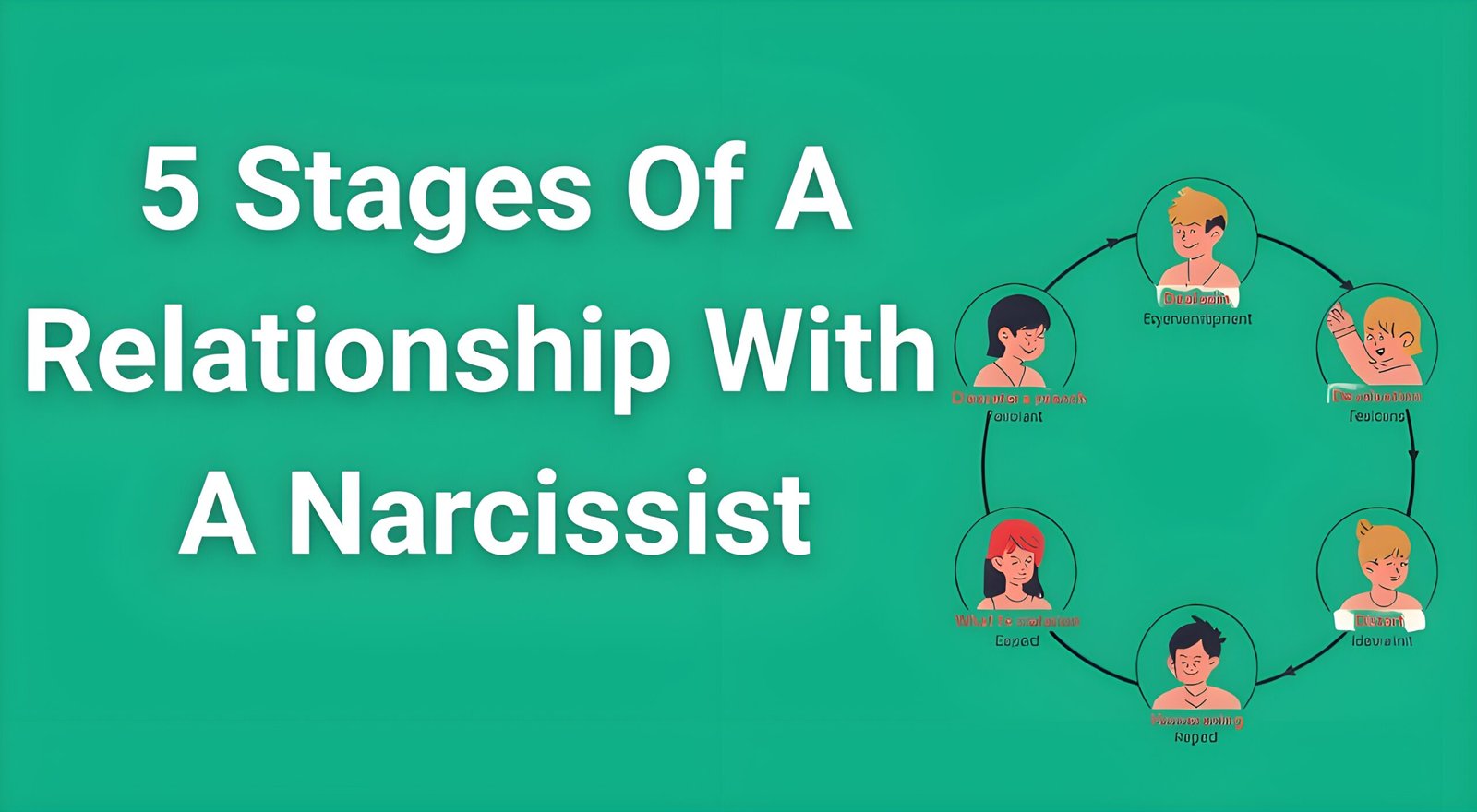Have you ever felt confused, used, or emotionally drained after intimate moments with your partner? If conversations about your sexual relationship leave you questioning your own needs and desires, you might be experiencing the complex dynamics of narcissist and sex relationships. Understanding these patterns can be the first step toward protecting your emotional well-being and reclaiming your sense of self.
- Understanding Sexual Narcissism vs. Narcissistic Sexual Behavior
- The Psychology Behind Narcissist and Sex Dynamics
- 15 Critical Red Flags in Narcissist and Sex Relationships
- The Psychological Impact on Partners
- Trauma Bonding in Sexual Relationships
- Breaking Free from Sexual Narcissist Patterns
- The Role of Professional Assessment
- Developing Sexual Recovery Strategies
- Protecting Yourself in Current Relationships
- Building Healthy Sexual Relationships
- Frequently Asked Questions
- Conclusion: Your Path to Sexual Healing and Empowerment
Sexual relationships with narcissistic individuals create unique challenges that extend far beyond the bedroom. When narcissist and sex intersect, the result often involves manipulation, control, and a profound lack of genuine intimacy that can leave partners feeling isolated and confused about their own experiences.
Understanding Sexual Narcissism vs. Narcissistic Sexual Behavior
Before diving into the warning signs, it’s crucial to understand the distinction between sexual narcissism and narcissistic sexual behaviors. Sexual narcissism represents a pervasive pattern where an individual consistently prioritizes their own sexual desires, validation, and pleasure while showing little genuine concern for their partner’s emotional or physical needs.
On the other hand, narcissistic sexual behaviors refer to specific actions that someone with narcissistic traits might display during intimate encounters. These behaviors can emerge even in individuals who don’t have a clinical diagnosis of Narcissistic Personality Disorder (NPD).
Research from psychology journals indicates that individuals with higher levels of narcissistic traits often report engaging more frequently in sexual fantasies, yet paradoxically experience lower overall sexual satisfaction. This disconnect stems from their focus on validation and control rather than genuine connection and mutual pleasure.
The Psychology Behind Narcissist and Sex Dynamics
When examining narcissist and sex relationships, it becomes clear that intimacy serves multiple purposes for the narcissistic partner beyond physical pleasure. Sex becomes a tool for validation, control, and maintaining their inflated self-image rather than an expression of genuine love and connection.
The neurochemical aspects of these relationships create additional complexity. The intermittent reinforcement pattern typical in narcissistic relationships—alternating between intense attention and cold withdrawal—triggers the release of dopamine and oxytocin in ways that can create trauma bonding. This biochemical response helps explain why partners often find themselves staying in unfulfilling sexual relationships despite recognizing problematic patterns.
15 Critical Red Flags in Narcissist and Sex Relationships
1. Love Bombing Followed by Sexual Withdrawal
In the early stages, a sexual narcissist may shower you with excessive attention, claiming you’re the best lover they’ve ever had. However, this intense period quickly shifts to periods of sexual withdrawal or criticism. This cycle keeps you constantly seeking their approval and validation.
2. Your Pleasure Becomes Secondary
While they may initially focus on your satisfaction, this attention typically serves their ego rather than genuine care for your enjoyment. Over time, your sexual needs become increasingly irrelevant to them unless they somehow benefit their self-image.
3. Constant Need for Sexual Validation
They require frequent praise about their sexual performance and may become angry, sullen, or punishing if you don’t provide the level of admiration they expect. Comments about their skills must be enthusiastic and detailed to satisfy their ego.
4. Sex as a Control Mechanism
They use sexual intimacy—or the withdrawal of it—as a way to manipulate your emotions and behavior. Sexual access becomes contingent on your compliance with their demands or emotional state.
5. Lack of Post-Intimacy Connection
After sexual encounters, they may immediately become emotionally distant, check their phone, or show little interest in cuddling or intimate conversation. This behavior reinforces that sex was primarily about their physical release rather than emotional bonding.
6. Boundary Violations and Pressure
They consistently push against your stated boundaries and may use guilt, manipulation, or anger to pressure you into sexual acts you’re uncomfortable with. Your “no” is treated as a starting point for negotiation rather than a firm boundary.
7. Comparing You to Previous Partners
They frequently mention their sexual history in ways designed to make you feel insecure or competitive. These comparisons serve to establish their desirability while undermining your confidence.
8. Emotional Disconnection During Intimacy
Eye contact may be minimal, and they might prefer positions that allow them to maintain emotional distance. The focus remains on the physical act rather than the emotional connection between partners.
9. Sexual Entitlement
They expect sexual availability on their terms, regardless of your emotional state, stress levels, or physical comfort. Your consent is assumed rather than sought, and rejection is met with anger or punishment.
10. Performance-Focused Rather Than Connection-Focused
Sexual encounters feel more like performances where you’re expected to play a specific role rather than authentic expressions of mutual desire and affection.
11. Using Sex to Resolve Conflicts
Instead of addressing relationship issues through communication, they may use sexual intimacy to avoid difficult conversations or to “make up” without actually resolving underlying problems.
12. Jealousy and Possessiveness
They may become intensely jealous about your sexual past or present interactions with others, while simultaneously feeling entitled to flirt or maintain inappropriate relationships themselves.
13. Withholding Intimacy as Punishment
Sexual withdrawal becomes a weapon used to punish you for perceived slights or failures to meet their expectations. This creates an environment where you modify your behavior to maintain sexual connection.
14. Exploiting Your Insecurities
They identify and exploit your sexual insecurities, using intimate knowledge gained during vulnerable moments against you during conflicts or to maintain control in the relationship.
15. Lack of Sexual Empathy
They show little genuine concern for your sexual satisfaction, comfort, or emotional state during intimate encounters. Your pleasure matters only insofar as it reflects positively on their abilities.
The Psychological Impact on Partners
Engaging in sexual relationships with narcissistic individuals often leads to significant psychological consequences. Partners frequently report feeling emotionally depleted, confused about their own desires, and increasingly isolated from their support networks.
The constant focus on the narcissistic partner’s needs can erode your sense of sexual agency and self-worth. Many individuals in these relationships begin to question their own perceptions, developing what researchers call “abuse amnesia”—a tendency to minimize or forget negative experiences while holding onto moments of positive attention.
This psychological impact extends beyond the bedroom, affecting your overall sense of identity and self-esteem. The intermittent reinforcement pattern typical in narcissist and sex relationships can create an addictive cycle where you find yourself constantly seeking validation and approval.
Trauma Bonding in Sexual Relationships
One of the most challenging aspects of narcissist and sex dynamics involves trauma bonding—the psychological phenomenon where victims develop strong emotional attachments to their abusers through cycles of abuse and reconciliation.
In sexual relationships, trauma bonding manifests through the alternating pattern of intense sexual attention followed by emotional coldness or criticism. The unpredictable nature of these cycles triggers neurochemical responses similar to those seen in addiction, making it extremely difficult to leave even when you recognize the harmful patterns.
Understanding trauma bonding helps explain why “just leaving” feels impossible despite recognizing the relationship’s toxicity. Your brain literally craves the chemical highs associated with the positive moments, creating a powerful psychological addiction that willpower alone cannot overcome.
The intensity of sexual experiences within trauma-bonded relationships often feels heightened due to the emotional rollercoaster dynamic. This intensity can make normal, healthy relationships feel boring by comparison, further complicating recovery efforts.
Breaking Free from Sexual Narcissist Patterns
Recognition represents the first crucial step toward healing from narcissist and sex relationships. Once you identify these patterns, you can begin implementing strategies to protect your emotional well-being and reclaim your sexual autonomy.
Setting and maintaining boundaries becomes essential, though narcissistic individuals typically resist any limits on their behavior. Clear, consistent communication about your needs and limits provides a foundation for change, though you must be prepared for significant pushback.
Building a support network outside the relationship proves crucial for maintaining perspective and emotional stability. Narcissistic partners often work to isolate you from friends and family who might provide objective feedback about the relationship dynamics.
Professional support through therapy can provide invaluable guidance for understanding these complex dynamics and developing healthy coping strategies. Working with a therapist experienced in narcissistic abuse can help you process your experiences and develop a clear path forward.
The Role of Professional Assessment
Sometimes, the patterns in narcissist and sex relationships become so normalized that it’s difficult to trust your own perceptions. Professional assessment can provide the clarity needed to understand exactly what you’re experiencing and why you feel confused or trapped.
An expert analysis of your specific situation can help you understand the manipulation tactics being used against you and provide a roadmap for protection and healing. This type of assessment takes into account the unique dynamics of your relationship and provides personalized strategies rather than generic advice.
Many individuals find that having their experiences validated by a professional helps them move from confusion to clarity, finally understanding that their feelings and perceptions are valid and that the problem lies with their partner’s behavior rather than their own sensitivity.
Developing Sexual Recovery Strategies
Recovery from narcissist and sex relationships requires specific strategies that address both the psychological and neurochemical aspects of trauma bonding. Traditional relationship advice often falls short because it doesn’t account for the addictive nature of these dynamics.
Structured daily practices can help rewire your brain’s response patterns and break the cycle of obsessive thinking about your partner. These practices focus on stabilizing your nervous system and gradually reducing the neurochemical cravings associated with the trauma bond.
Understanding that recovery is a process rather than a single decision helps maintain realistic expectations and prevents self-criticism when progress feels slow. Most individuals require dedicated effort over weeks or months to fully break free from these psychological patterns.
The development of new neural pathways through consistent practice ultimately allows you to experience healthy relationships without the emotional chaos and intensity addiction that characterizes narcissist and sex dynamics.
Protecting Yourself in Current Relationships
If you’re currently in a relationship with narcissistic sexual patterns, your safety and well-being must remain the top priority. Sometimes immediate departure isn’t possible due to financial, legal, or safety concerns, requiring interim strategies for protection.
Documenting concerning behaviors provides both validation for your experiences and potential evidence if legal protection becomes necessary. Keep detailed records of incidents, conversations, and behavioral patterns in a secure location your partner cannot access.
Developing a safety plan that includes trusted contacts, financial resources, and secure communication methods helps prepare for various scenarios. Even if you hope the relationship can improve, having contingency plans provides peace of mind and practical resources.
Seeking support while still in the relationship requires discretion but remains crucial for maintaining perspective and emotional stability. Online resources and confidential support services can provide guidance without alerting your partner to your concerns.
Building Healthy Sexual Relationships
Once you’ve recognized and addressed narcissist and sex patterns, developing healthy intimate relationships requires learning new skills and approaches. Healthy sexuality involves mutual respect, clear communication, and genuine concern for your partner’s well-being alongside your own.
Learning to identify and communicate your own sexual needs and boundaries becomes essential after periods of having those needs dismissed or invalidated. This process often requires patience with yourself as you rediscover your authentic desires and preferences.
Healthy partners will respect your boundaries, show genuine interest in your pleasure and emotional well-being, and engage in open communication about sexual preferences and concerns. The relationship should feel balanced rather than constantly focused on one person’s needs or validation.
Frequently Asked Questions
Q: How long does it take to recover from a sexual relationship with a narcissist?
A: Recovery timelines vary significantly based on the relationship’s duration, the intensity of trauma bonding, and individual factors. Most people begin noticing improvements within the first few weeks of structured recovery work, with major breakthroughs typically occurring within 30-60 days of consistent effort.
Q: Can a sexual narcissist change their behavior?
A: While personality change is possible, narcissistic traits are deeply ingrained and highly resistant to modification. Research suggests that successful treatment requires the individual to recognize their problematic behaviors and commit to long-term therapy, which many narcissists resist due to their defensive nature.
Q: Is it possible to have a healthy sexual relationship with someone who has narcissistic traits?
A: Healthy sexuality requires empathy, mutual respect, and genuine care for your partner’s well-being—qualities that are fundamentally incompatible with narcissistic behavior patterns. While some individuals may be able to modify specific behaviors, the underlying self-centered approach to relationships typically persists.
Q: How do I know if I’m being too sensitive about sexual issues in my relationship?
A: Trust your instincts. If you consistently feel used, uncomfortable, or emotionally drained after intimate encounters, these feelings deserve attention regardless of how your partner responds to your concerns. Healthy relationships should leave you feeling valued and connected, not confused or depleted.
Q: What’s the difference between someone being selfish in bed versus being a sexual narcissist?
A: Sexual selfishness might be addressed through communication and compromise, while sexual narcissism involves a pervasive pattern of entitlement, manipulation, and lack of empathy that extends beyond sexual encounters. Sexual narcissists typically respond to feedback with defensiveness or retaliation rather than genuine effort to improve.
Conclusion: Your Path to Sexual Healing and Empowerment
Understanding the dynamics of narcissist and sex relationships represents a crucial step toward reclaiming your emotional and sexual well-being. The patterns described in this article affect millions of individuals, and recognizing these red flags can help prevent years of psychological damage and confusion.
Remember that your feelings and experiences are valid, regardless of how others might minimize or dismiss your concerns. Healthy sexual relationships should enhance your sense of self-worth and connection rather than leaving you feeling depleted and questioning your own perceptions.
If you recognize multiple red flags from this article in your current relationship, consider seeking professional support to help you navigate these complex dynamics. You deserve intimate relationships characterized by mutual respect, genuine care, and emotional safety.
Your journey toward healing begins with a single step: acknowledging that your needs and well-being matter. With the right support and strategies, you can break free from harmful patterns and build the healthy, fulfilling relationships you deserve.
Take time to reflect on your experiences and trust your instincts about what feels right for your emotional and physical well-being. Your path to recovery and empowerment starts with believing in your own worth and right to healthy, respectful intimate relationships.






